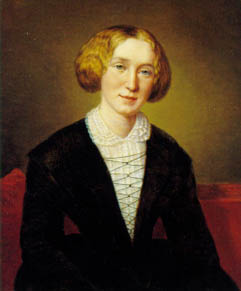 The following is excerpted from The Descent Into Unbelief: When Christendom Produces Cultists, Mockers and Atheists, by Jonathan Rice which originally appeared in the SCP Journal (29:2-29:3) . (Reprinted with permission). (Also check out Part I and Part II). So far, we have had a glimpse into the fruit-filled faith of the Victorians who so positively impacted their culture for Christ. Yet many of their children and grandchildren left the faith. Why? Essentially, Rice contends, they lost in the battle for the minds of their children. They failed to teach their children to reason biblically. As these children entered adulthood and were confronted for the first time with objections to Christianity, they were not adequately equipped to meet the challenge, instead leaving the faith.
The following is excerpted from The Descent Into Unbelief: When Christendom Produces Cultists, Mockers and Atheists, by Jonathan Rice which originally appeared in the SCP Journal (29:2-29:3) . (Reprinted with permission). (Also check out Part I and Part II). So far, we have had a glimpse into the fruit-filled faith of the Victorians who so positively impacted their culture for Christ. Yet many of their children and grandchildren left the faith. Why? Essentially, Rice contends, they lost in the battle for the minds of their children. They failed to teach their children to reason biblically. As these children entered adulthood and were confronted for the first time with objections to Christianity, they were not adequately equipped to meet the challenge, instead leaving the faith.Most of those who fell away fit into a similar pattern. On one hand, they resented the repressive narrowness of their upbringings, but they also appreciated the many good aspects. Their main problem was in the world of ideas: no longer were they protected, sheltered children, reading the religious propaganda of Hannah More or Thomas Bowdler's expurgated editions of Shakespeare. They were now thinking adults in the real world, exposed to the ideas of atheists, agnostics, occultist, and sexual revolutionaries. Their parents and their churches hadn't provided answers to such objections to their faith. Nor had they trained their children in the critical thinking skills needed to contrast biblical and other worldviews, which would have enabled them to find answers for themselves. The result was a severe "conversion crisis," but this time a conversion away from the Christian faith to atheism or agnosticism.
Many of them agonized deeply over their loss of faith. It was as though they had been robbed. They loved God and wished with all their hearts that they could still believe in him, but the evidence before them tore their faith away. Many held onto as much of their godly past as possible, trying to salvage the strong sense of morality, duty, hard work, and self-control, but without the God who had given them those qualities in the first place. One of them [Sir James Fitzjames Stephen] summed it up this way in 1873: "Let us dream no dreams and tell no lies, but go our way, wherever it may lead, with our eyes open and our heads raised."[1] There is bravery and integrity in this statement, together with a horrible sense of the tragic. It is the practical creed of a man who had once known and loved God, but had lost all faith and was facing his short life alone and abandoned in a now empty universe.
The story of the great author George Eliot (the pen name of Mary Ann Evans) was quite depressing. She was raised an Evangelical and loved God with all her heart but unfortunately, she hadn't learned to love God with her mind. Her hero was the great Christian political reformer William Wilberforce and at age 19 she wrote, "Oh that I might be made as useful in my lowly and obscure station as he [Wilberforce] was in the exalted one assigned to him."[2] In a letter to a friend she wrote that she would be happy if she only listend to worship songs for the rest of her life. However, not all was well. Bradley notes that, "Three years later she rejected Christianity in a conversion which was almost as cataclysmic as those which had brought others to vital religion."[3]
[1] Bradley, Ian C. The Call to Seriousness: The Evangelical Impact of the Victorians. (New York: MacMillan publishing Company, 1976) p. 200.
[2] Ibid, p. 199.
[3] Ibid.
The portrait, George Eliot at 30 by François D'Albert Durade, is in the public domain.
Next week, we will look more into the details of George Eliot's "conversion." The thesis of this article is very relavent today. As I observe the church, it seems to me that we are losing ground in the battle of ideas. This is not because Christianity does not have adequate defenses against the onlsaught of our postmodern, entertainment-driven culture, but because many seek to retreat from the battle. When we do this to the point of completely secluding our children from ideas contrary to our faith, they will be ill-equipped to confront them when they leave the home. It is also the heart of why we have chosen to use the Biblical Principle Approach in our homeschool.
